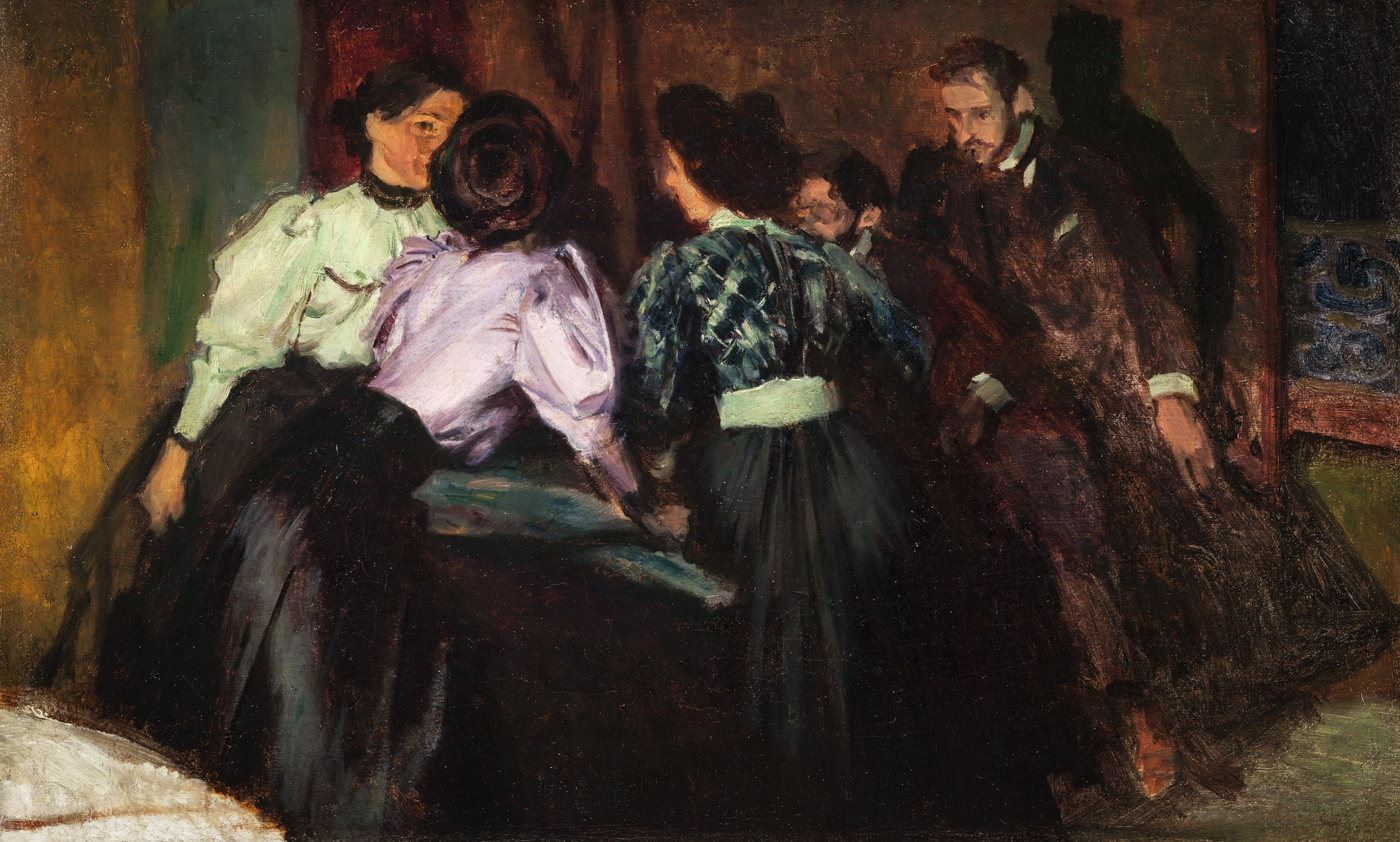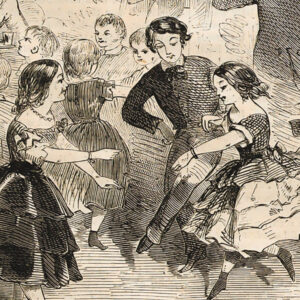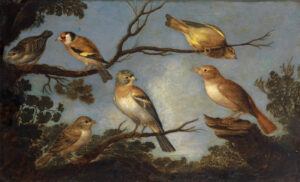—Ink and Echoes—

Eutrapelia
And Other Modes of
Conversation, Good & Bad

Francis de Sales
—1609—

It is said that those who eat the plant called Angelica always have a sweet, pleasant breath, and those who cherish the angelic virtues of purity and modesty will always speak simply, courteously, and modestly. As to unclean and light-minded talk, St. Paul says such things should not even be named among us, for, as he elsewhere tells us, “Evil communications corrupt good manners.”
Those impure words that are spoken in disguise and with an affectation of reserve, are the most harmful of all; for just as the sharper the point of a dart, so much deeper it will pierce the flesh, so the sharper an unholy word, the more it penetrates the heart. And as for those who think to show themselves knowing when they say such things, they do not even understand the first object of mutual intercourse among men, who ought rather to be like a hive of bees gathering to make honey by good and useful conversation, than like a wasps’ nest, feeding on corruption. If any impertinent person addresses you in unseemly language, show that you are displeased by turning away, or by whatever other method your discretion may indicate.
 One of the most evil dispositions possible is that which satirizes and turns everything to ridicule. God abhors this vice and has sometimes punished it in a marked manner. Nothing is so opposed to charity, much more to a devout spirit, as contempt and depreciation of one’s neighbor, and where satire and ridicule exist, contempt must be. Therefore contempt is a grievous sin, and our spiritual doctors have well said that ridicule is the greatest sin we can commit in word against our neighbor, inasmuch as when we offend him in any other way, there may still be some respect for him in our heart, but we are sure to despise those whom we ridicule.
One of the most evil dispositions possible is that which satirizes and turns everything to ridicule. God abhors this vice and has sometimes punished it in a marked manner. Nothing is so opposed to charity, much more to a devout spirit, as contempt and depreciation of one’s neighbor, and where satire and ridicule exist, contempt must be. Therefore contempt is a grievous sin, and our spiritual doctors have well said that ridicule is the greatest sin we can commit in word against our neighbor, inasmuch as when we offend him in any other way, there may still be some respect for him in our heart, but we are sure to despise those whom we ridicule.
There is a light-hearted talk, full of modest life and gaiety, which the Greeks called Eutrapelia, and which we should call good conversation, by which we may find an innocent and kindly amusement out of the trifling occurrences which human imperfections afford. Only beware of letting this seemly mirth go too far, till it becomes ridicule. Ridicule excites mirth at the expense of one’s neighbor; seemly mirth and playful fun never lose sight of a trustful, kindly courtesy, which can wound no one. When the religious around him would fain have discussed serious matters with St. Louis at meal times, he used to say, “This is not the time for grave discussion, but for general conversation and cheerful recreation,“ out of consideration for his courtiers. But, my daughter, let our recreation always be so spent, that we may win all eternity through devotion. . . .
Let your words be kindly, frank, sincere, straightforward, simple, and true; avoid all artifice, duplicity, and pretence, remembering that, although it is not always well to publish abroad everything that may be true, yet it is never allowable to oppose the truth. Make it your rule never knowingly to say what is not strictly true, either accusing or excusing, always remembering that God is the God of Truth.  If you have unintentionally said what is not true, and it is possible to correct yourself at once by means of explanation or reparation, do so. A straightforward excuse has far greater weight than any falsehood. . . . Worldly prudence and artifice belong to the children of this world, but the children of God go straight on with a single heart and in all confidence; falsehood, deceit, and duplicity are sure signs of a mean, weak mind.
If you have unintentionally said what is not true, and it is possible to correct yourself at once by means of explanation or reparation, do so. A straightforward excuse has far greater weight than any falsehood. . . . Worldly prudence and artifice belong to the children of this world, but the children of God go straight on with a single heart and in all confidence; falsehood, deceit, and duplicity are sure signs of a mean, weak mind.
In the Fourth Book of his Confessions, St. Augustine spoke in very strong terms of his passionate devotion to a friend, saying that they had but as one soul, and that after his friend’s death his life was a horror to him, although he feared to die. But later on, these expressions seemed unreal and affected to him, and he withdrew them in his Retractations. You see how sensitive that great mind was to unreality or affectation. Assuredly straightforward honesty and sincerity in speech is a great beauty in the Christian life. . . .
The silence, so much commended by wise men of old, does not refer so much to a literal use of few words, as to not using many useless words. On this score, we must look less to the quantity than the quality, and, as it seems to me, our aim should be to avoid both extremes. An excessive reserve and stiffness, which stands aloof from familiar friendly conversation, is untrusting, and implies a certain sort of contemptuous pride; while an incessant chatter and babble, leaving no opportunity for others to put in their word, is frivolous and troublesome.





















